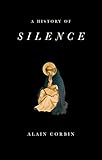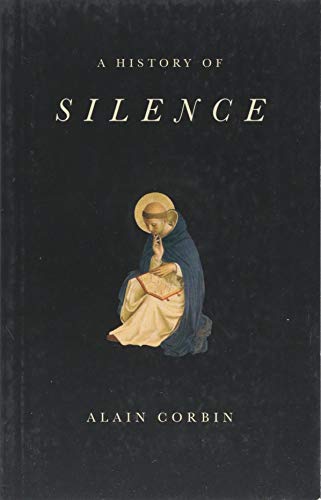The entire Western front went silent at exactly 11 a.m. on November 11, 1918. An armistice had been reached earlier that morning between the Allies and Germany, so it was agreed that hostilities would cease at that precise hour. Last year, audiologists at London’s Imperial War Museum used seismic data that had been gathered in the trenches as part of the war effort to recreate that moment. Now it’s possible to listen to what American troops along the River Moselle heard: repeated blasts of artillery fire for two minutes, a final explosion, and then at 11 a few gentle bird chirps in the autumn morning as everything falls quiet. An eerie, stunning, beautiful sound. The most sacred thing you will ever hear.
Everything and nothing is answered in silence as deep as that. Following such barbarity and horror, the very earth was now enveloped in a deep blanketing quiet. Novelist Kurt Vonnegut, who had experienced the nightmare of war when he was a POW in Dresden during the Allied bombing campaign of World War II, said of the Armistice that “I have talked to old men who were on battlefields during that minute. They have told me in one way or another that the sudden silence was the voice of God.” A moving and strange wisdom that understands that when the Lord speaks it may not be through thunder-clap and lightning, but rather in the final blast of artillery and a few bird chirps across a scarred field. If dissonance is the question, then silence may be the only answer.
Our present world is not quite as loud as it had been on the Western front (yet), but still we live mired in a never-ending cacophony. A century after God spoke unto the trenches of the Great War, and the volume is getting louder and louder. Not artillery shells, but the din of chatter, the thrum of status updates, the vibration of push notification. With the omnipresence of the smartphone, we’re continually in multiple conversations that often don’t deserve our attention. The 24-hour news cycle forces us to formulate hot-takes and positions on every conceivable event, from issues of political importance to fleeting pop culture phenomenon, and bellicose bloviating announces itself 140 characters at a time from the top on down. If Vonnegut is right that God spoke a century ago, then our current age is too loud to make that voice out today.


 So loud is our current age, the echo of social media static resounding in our ears, that the French historian Alain Corbin writes that when it comes to silence “We have almost forgotten what it is.” If the industrial revolution heralded a landscape where silence was eliminated, the peace of town and country punctuated by the clank of machinery, then the digital revolution has shifted that very noise into our heads as well. Perhaps that’s why there has been a recent spike in interest about silence in titles like Erline Kagge’s Silence: In the Age of Noise or Jane Brox’s Silence: A Social History of One of the Least Understood Elements of Our Lives. Like Corbin in his A History of Silence, we’re all looking for a little peace and quiet these days.
So loud is our current age, the echo of social media static resounding in our ears, that the French historian Alain Corbin writes that when it comes to silence “We have almost forgotten what it is.” If the industrial revolution heralded a landscape where silence was eliminated, the peace of town and country punctuated by the clank of machinery, then the digital revolution has shifted that very noise into our heads as well. Perhaps that’s why there has been a recent spike in interest about silence in titles like Erline Kagge’s Silence: In the Age of Noise or Jane Brox’s Silence: A Social History of One of the Least Understood Elements of Our Lives. Like Corbin in his A History of Silence, we’re all looking for a little peace and quiet these days.
Philosophy is traditionally conveyed through debate and argument. A reliance on disputation and dialogue, syllogism and seminar, would seem to proffer a noisy discipline. Yet philosophy can also be defined by a peaceful undercurrent, a metaphysics of silence. Corbain writes that silence is the “precondition for contemplation, for introspection, for meditation, for prayer, for reverie and for creation.” Silence allows us the intentionality required of thought, the presentness needed for rumination. If one model of philosophy takes place in the noisy Agora of ancient Athens, long Socratic dialogues among the sellers of lemons and olives, then another way of practicing philosophy emphasizes the quiet, the construction of a space in which thought can grow unhampered, where answers may be found among the still. Such quiet is its own philosophical method, a type of thought where answers are not generated through dialectic, but from within the soul of the thinker herself.
Something instrumental in this, where silence is a means to an end. But such an approach still has noise as its ultimate goal, in the form of declared conclusions.When parsing the significance of silence there are radical conclusions. Stillness can be the space that allows us to find future answers, but there is a wisdom that sees silence itself as an answer. In a Western tradition that very much sees logic as a goal unto itself, where truth is a matter of positive statements about objective reality, silence is its own anarchic technique, its own strange approach to that which we cannot speak. Silence can be both process and result.
From the sixth century before the Common Era when Lao-Tzu claimed that “The spoken Tao is not the eternal Tao” until Ludwig Wittgenstein’s 1924 conclusion that “Whereof one cannot speak, thereof one must be silent,” silence has been a philosophical counter-tradition. Wittgenstein argued that if all of the questions of science, logic, and mathematics were somehow to be answered, we’d still have to be silent about that which is most profound. Issues of metaphysics would be passed over in a deep silence, not because they’re insignificant, but rather because they’re the most important. Perhaps it’s pertinent that the Austrian philosopher organized these thoughts while fighting in the loud trenches of World War I. Though separated by millennia, both thinkers believed that when the veil of reality is peeled back what mutely announces itself is a profound and deep silence.
Such an approach shares much with what theologians call the apophatic, from the Greek “to deny,” an understanding that when it comes to the approximation of ultimate things, it’s sometimes more accurate to say what something isn’t. Rather than circumscribe God with the limitations of mere words, we should pass eternity over in silence. Such a perspective holds that there can be more truth in uttering nothing than in a literal description. As the 9th-century Irish monk Johan Scotus Erigena wrote, “We do not know what God is.” Anticipating the monk’s contention, Jesus’s response to Pilate’s question of his origins was such that Christ “gave him no answer.” Scripture itself conveys that God’s silence is often more sacred than his declarations.
More than mere humility, apophatic theology is a profound approach that conveys that God isn’t just silent, but that in some ways God is silence. What would it mean, in our age of endless distraction and deafening noise, to inculcate silence not just for a bit of peace, but as an answer itself? What would it mean to engender within our lives an apophatic sensibility? To still the ear and mind long enough so that we could, as Vonnegut said, “remember when God spoke clearly to mankind?” Not in a booming voice, but rather in the sublime silence that permeates the emptiness between atoms and the space between stars, the very quiet where creation is born.
Image credit: Unsplash/ Felipe Elioenay.







